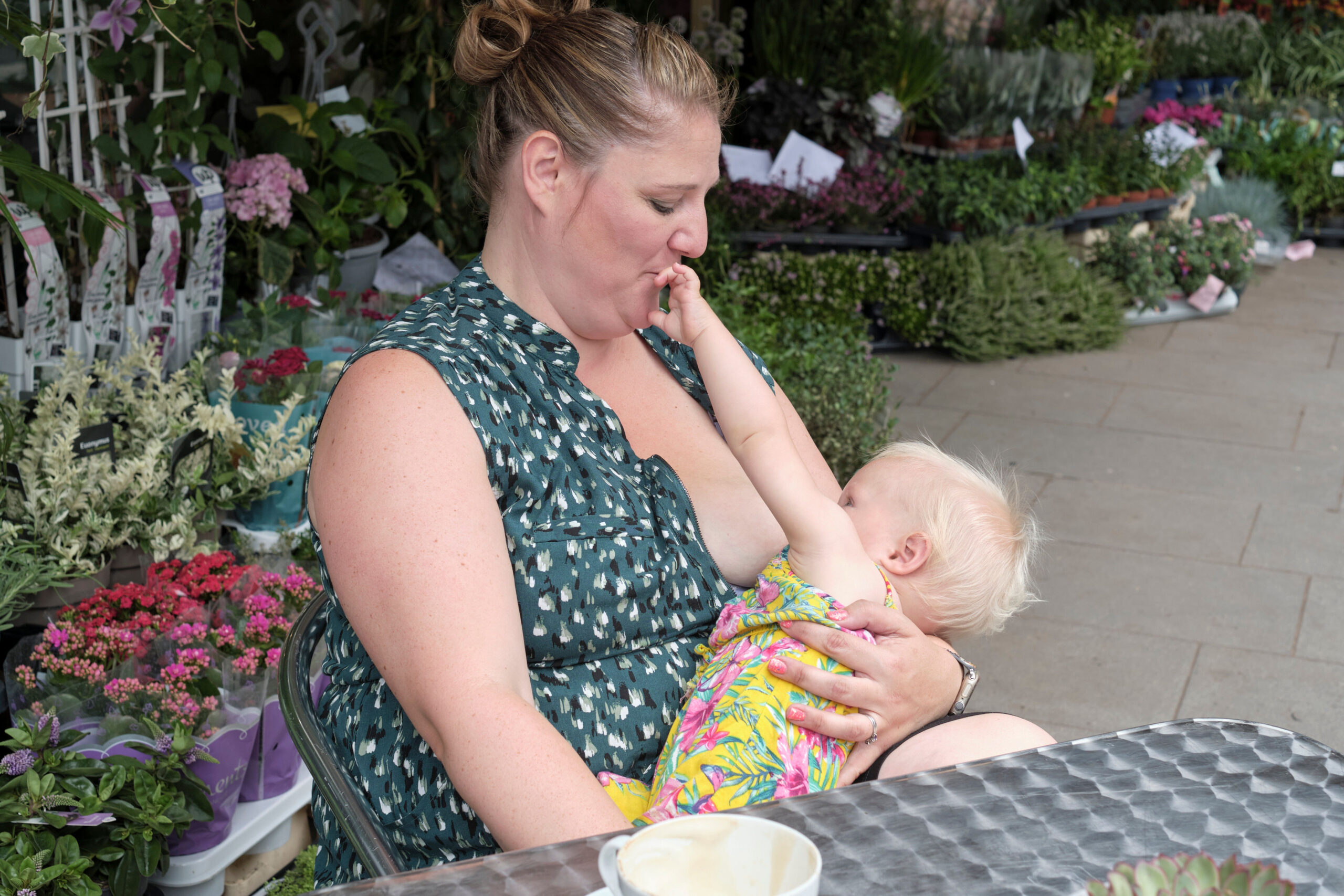Quite often, babies with a tongue-tie can feed without any problems.
In fact, some people can go their whole lives without even realising they have a tongue-tie!
In fact, some people can go their whole lives without even realising they have a tongue-tie!
A tongue-tie happens when the short, tight piece of tissue that attaches the tongue to the floor of the mouth (the frenulum) is shorter than normal. This can prevent your baby from latching on effectively.
Some babies with a tongue-tie have no problems at all and can latch on and feed well but others struggle which can cause problems for both you and your baby.
If you suspect your baby has a tongue-tie, a trained specialist would need to assess your baby.
If your GP or health professional suspects your baby has a tongue-tie, they may refer you to the specialist tongue-tie clinic based in Lordswood.
The specialist infant feeding service can offer support to help you feed your baby effectively and discuss any treatment if needed.
If treatment is necessary, your baby will have a straightforward procedure called a ‘frenulotomy’. This is carried out by specially trained medical staff based in the Lordswood infant feeding clinic.
A frenulotomy is a very quick and simple procedure and no anaesthetic is used. The surgery involves snipping the short, tight piece of tissue connecting the underside of the tongue to the floor of the mouth.
You can feed your baby as soon as it’s done, which will help to stop any bleeding and heal the cut.
Following a tongue-tie division, babies may need to relearn how to breastfeed.
After the procedure you will be advised to do oral exercises with your baby such as smiling and pulling tongues to support your baby’s tongue mobility.
After a tongue-tie division your baby will need some time to relearn their sucking skills. It’s a good idea to be open minded when breastfeeding, and adjust your little one’s attachment if needed to make sure they have a deep latch.
You can always come along to a peer support session or a Beside You social for reassurance and support about breastfeeding. If you are giving any bottles, make sure you are pacing the feeds and not overwhelming the baby.
You might find your baby tires a little when feeding in the first week or two. This may be frustrating so do not be impatient with your progress – it is a bit like starting all over again. It is important to keep practicing any new skill.
The oral exercises are helpful to improve the muscle tone and encourage lots of movement, and do encourage your baby to be vocal.
We use our tongues to shape the sounds we make, so a wide range of noises is a good thing – even if your baby is loud!
As the mouth heals, there is usually a small white/cream coloured patch under the tongue. This is normal healing and will go in 7-10 days.
The area may be tender for a few days, so if your baby moves the tongue quickly, they may show brief signs of discomfort.
However, suckling does not pull on the wound, so calm your little one by allowing them to suck on a clean finger or offering a feed will help.
If your baby is over 8 weeks, a dose of paracetamol suspension can be given if needed.
Many babies do not need any pain relief, as feeding is soothing, and breastmilk contains properties to help with pain.
If you have any concerns about the wound or how your baby is feeding, please call the health visitor duty number on 0300 123 3444 and a message will be sent to the infant feeding team here in Medway.
Someone from the team will contact you 1 week and 4 weeks after the procedure to check how things are going.
A tongue-tie is often not the only reason for feeding issues. If you have any concerns about your baby and tongue-tie please consult your local health visitor or GP.
Check out the Association of Tongue-tie Practitioners website provides lots of information and support for parents and professionals.

My youngest daughter had a very shallow latch and a tongue-tie which we had cut. After the tongue-tie division we were able to continue to feed.
I was so worried it was the end of our breastfeeding journey, but thankfully as soon as she felt better she latched straight back on and we are still enjoying our breastfeeding journey together at 13 months!
Hanna
